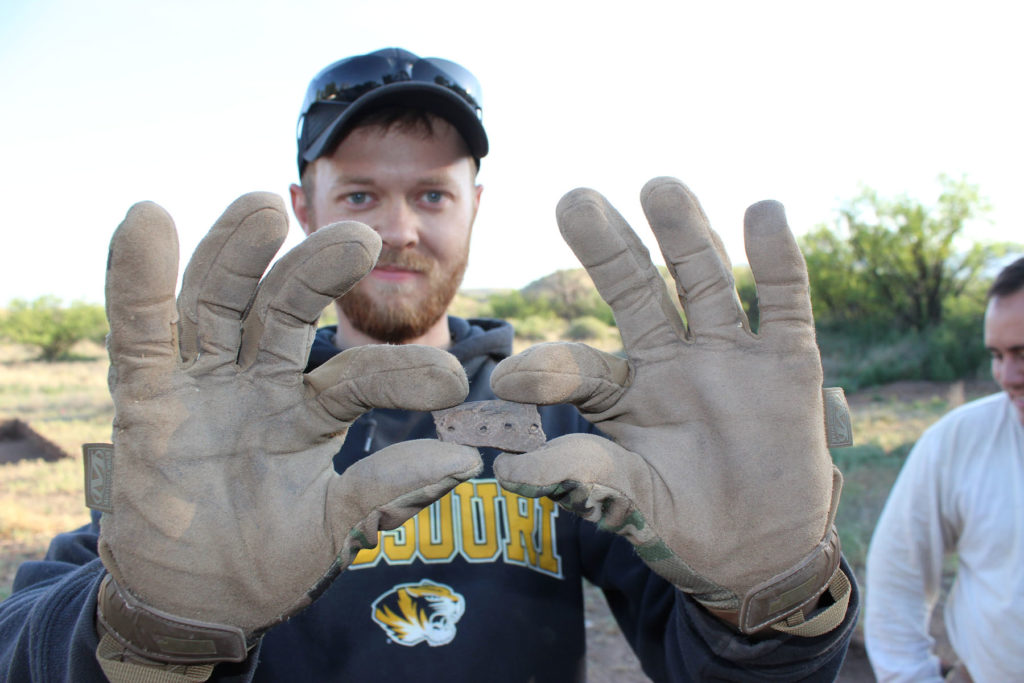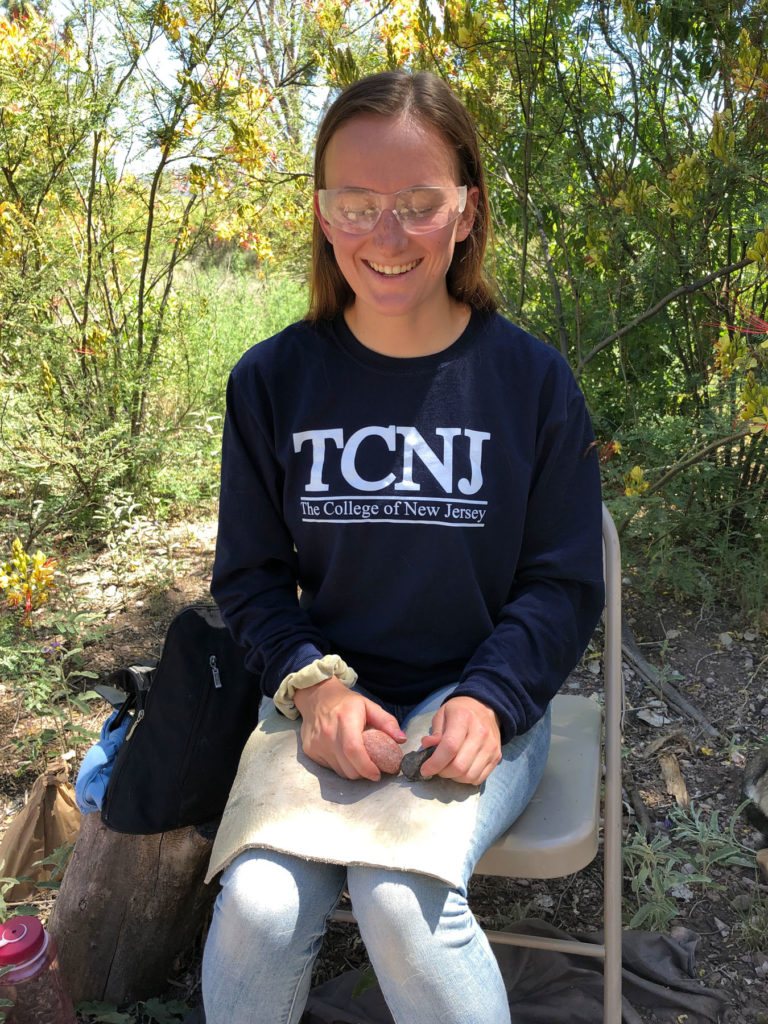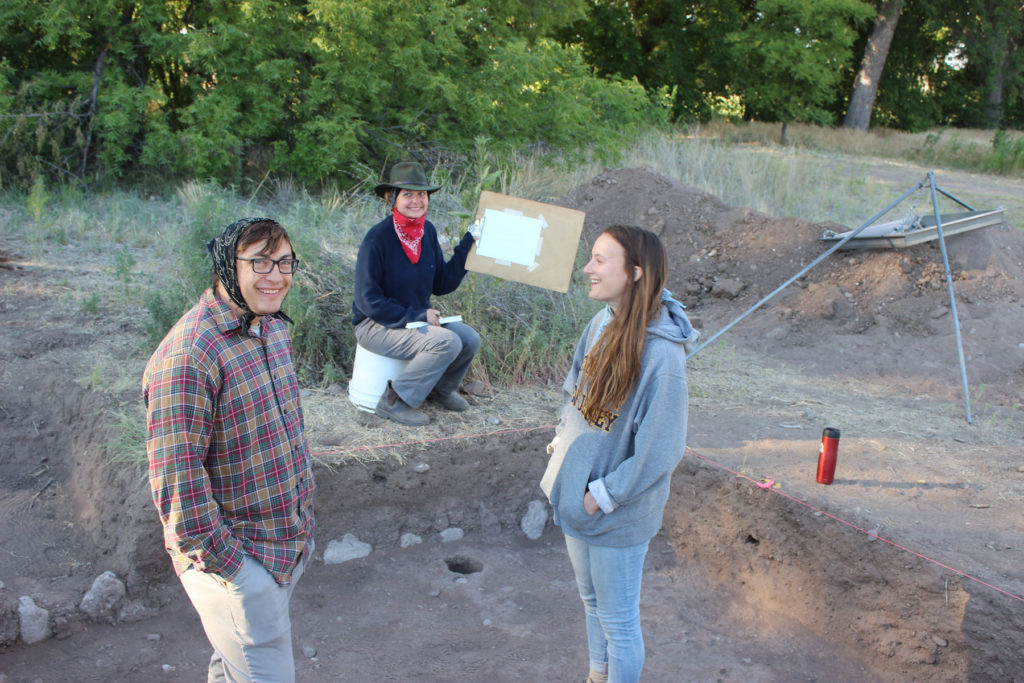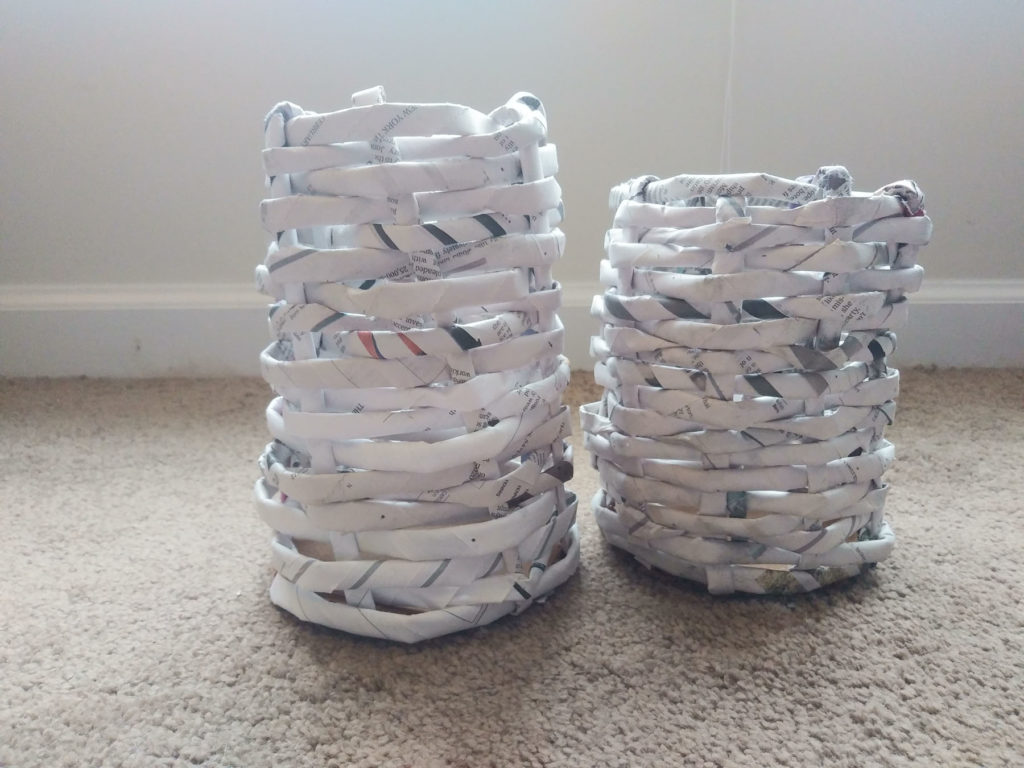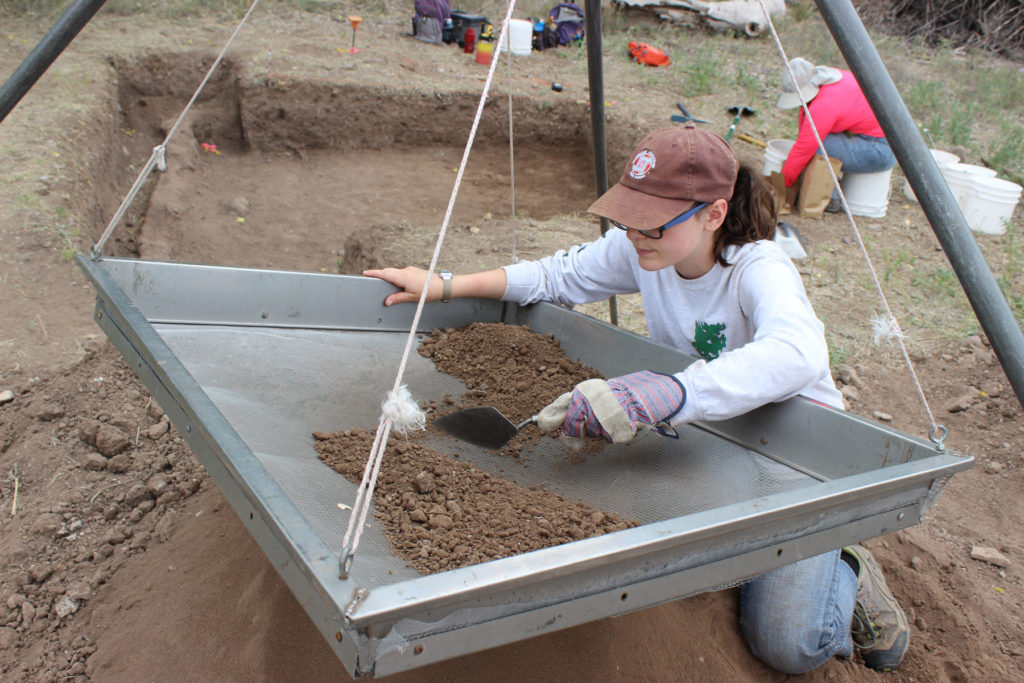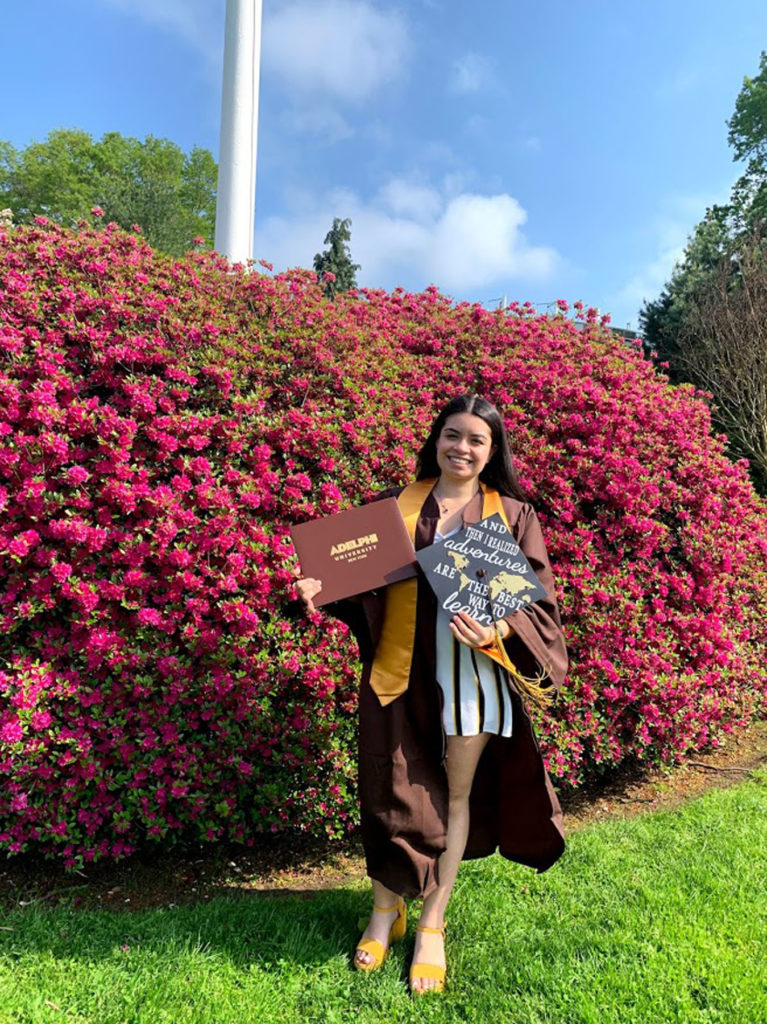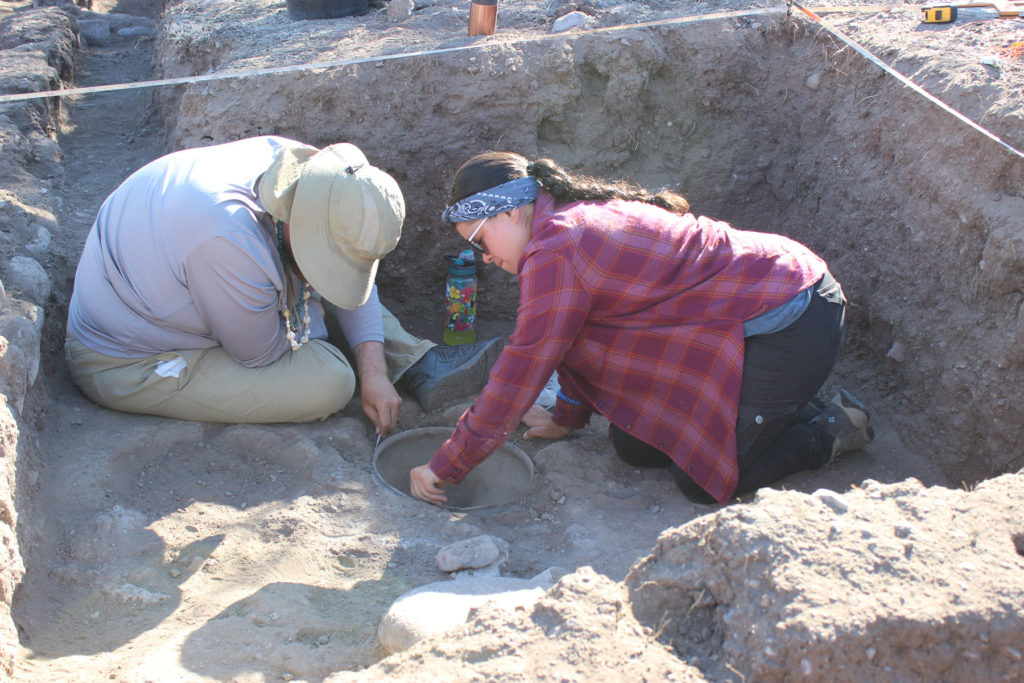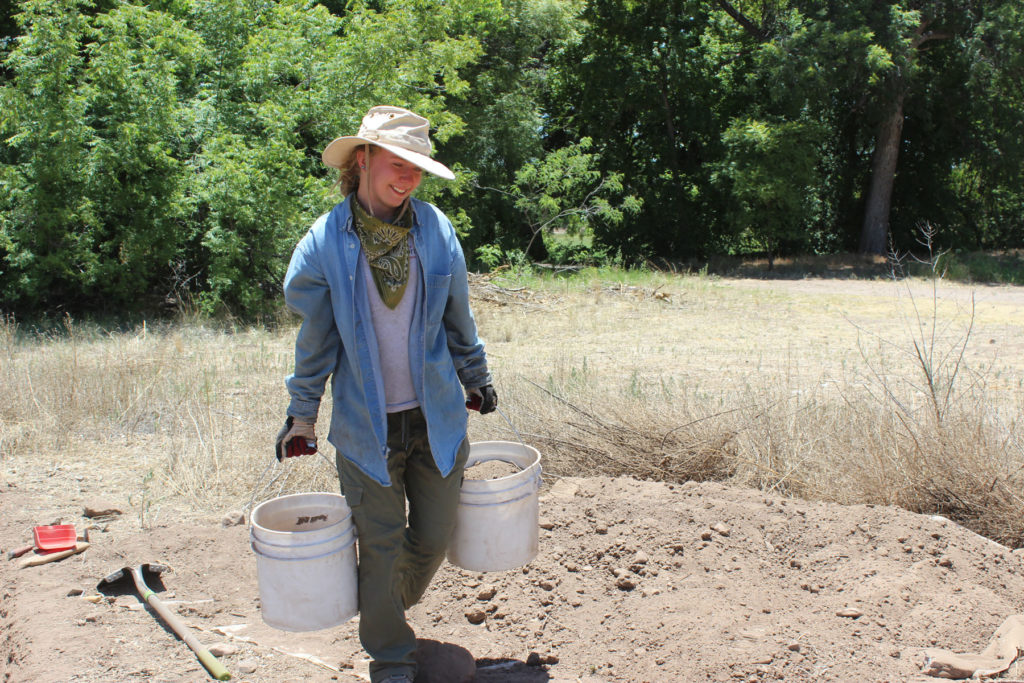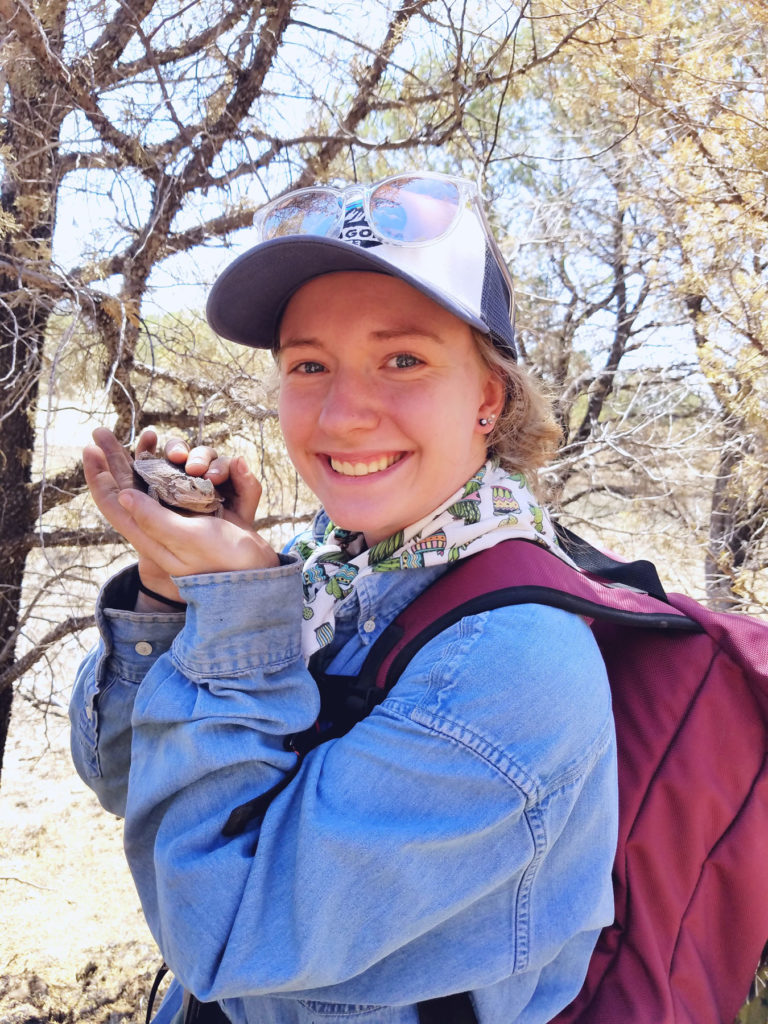- Home
- >
- Preservation Archaeology Blog
- >
- Congratulations to Graduating Field School Alumni

(May 26, 2020)—For the last six years, the end of May has meant the beginning of field school season. Every year, I’ve spent this time trying to squeeze in time to enjoy the last cool days of spring and the too-short season of ironwood and saguaro blossoms as I check over our supplies of ultra-specific paper and plastic artifact bags one last time and try to remember how many shower tents were in good repair when we packed them up the summer before. I’ve looked forward to standing in line at the Costco checkout counter with a cart overflowing with nothing but cereal and chips. (“How many kids do you have?” someone always asks in wonder. “Twelve,” I smile back.)

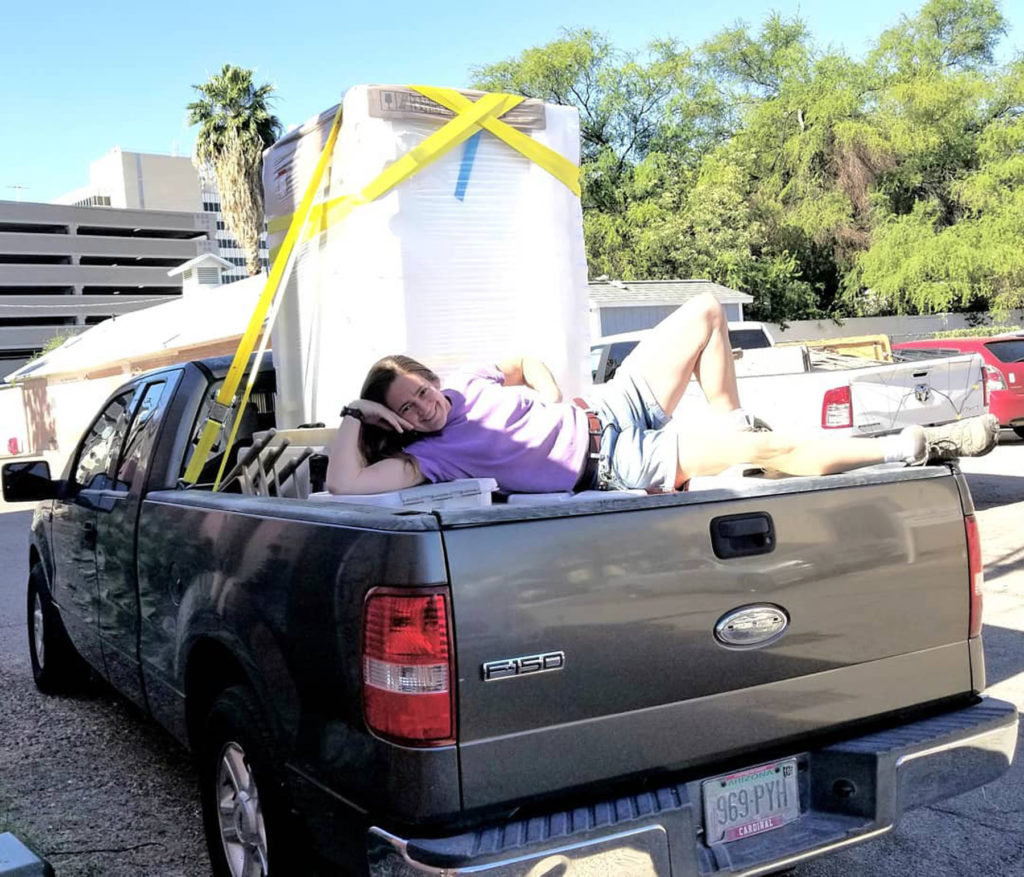
This year is different. It’s different in nearly every way imaginable, for all of us. The fact that our students will not be arriving this week is sad for all of us at Archaeology Southwest, and it is giving our field staff an ache in our chests right now. It’s for lots of good reasons, and it’s a much lesser thing to give up than many of the sacrifices people all over the world are making together right now, but that doesn’t make the ache go away.
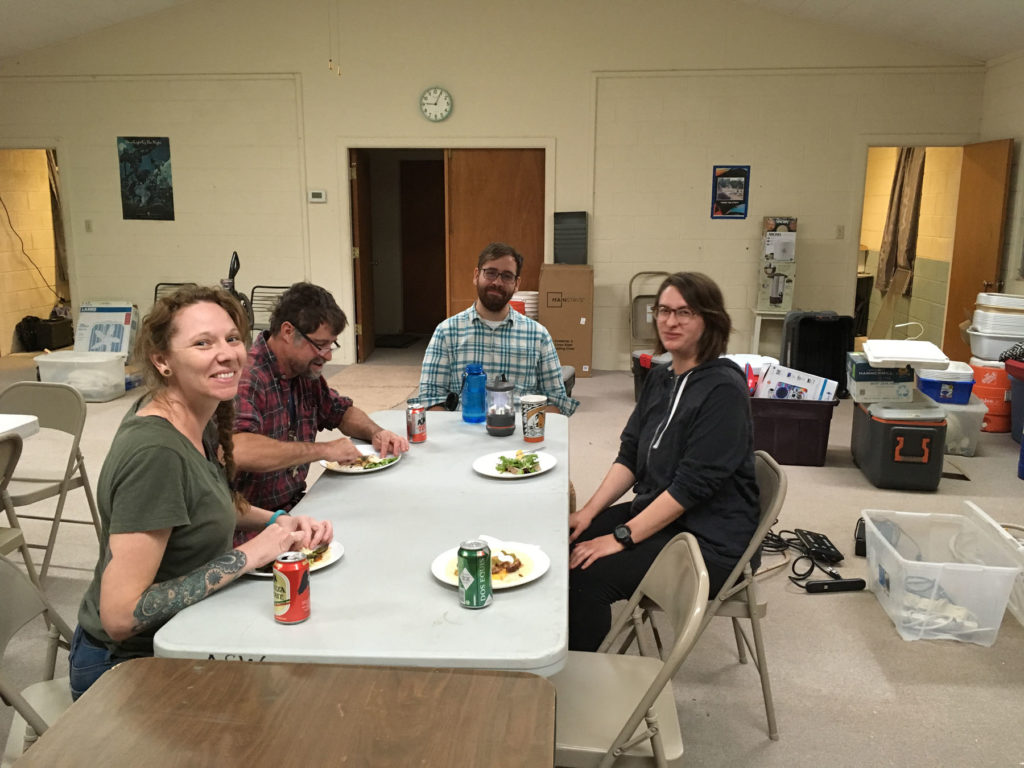
I will miss the feeling of closeness that comes from teamwork in the field. For me, working with our field staff is the best kind of teamwork, in which we all know we can rely on one another to get things done and build something together that’s much better than the sum of its parts. This staff group has seen me at my best and worst times, and I trust them in a way I’ve seldom experienced elsewhere.
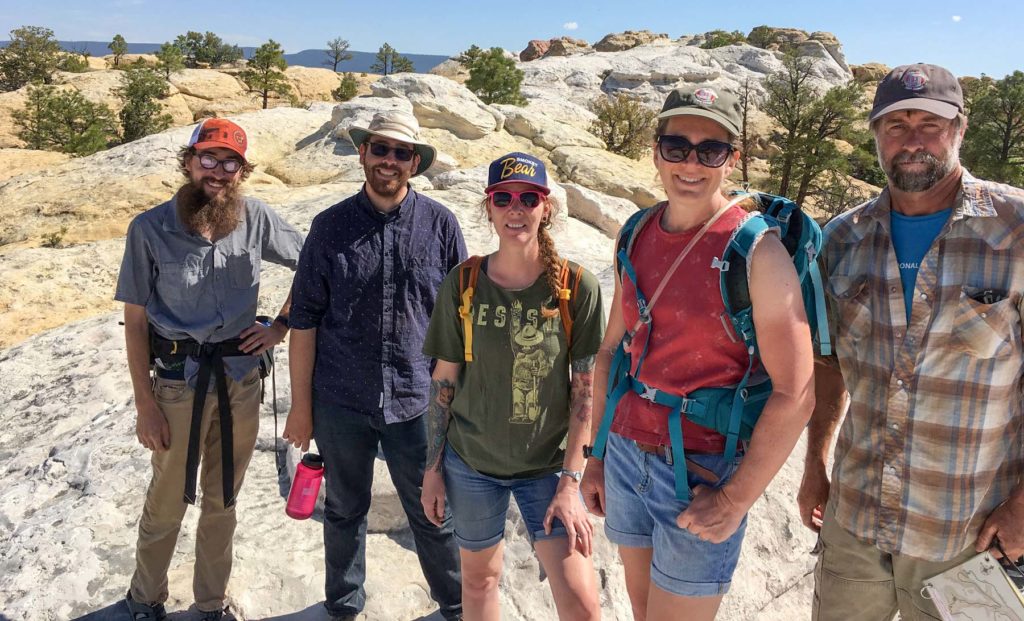
I will also miss the way our students grow to become a part of our close team. Every year, I watch people arrive uncertain whether they can scrape with a shovel correctly or distinguish between several different colors of brown dirt. Six weeks later, I confidently walk away and leave them in a trench, knowing they’ll be able to find the brown adobe wall buried in brown adobe melt deposits. I return from one end of the site at quitting time to find the whole crew gathered at the other end taking turns with the pickaxes, sweat dripping from their faces as they insist on staying an extra half hour so we can all work together to find the wall their teammates have been looking for. Everyone is exhausted and filthy and determined and working together on a goal we all care about.
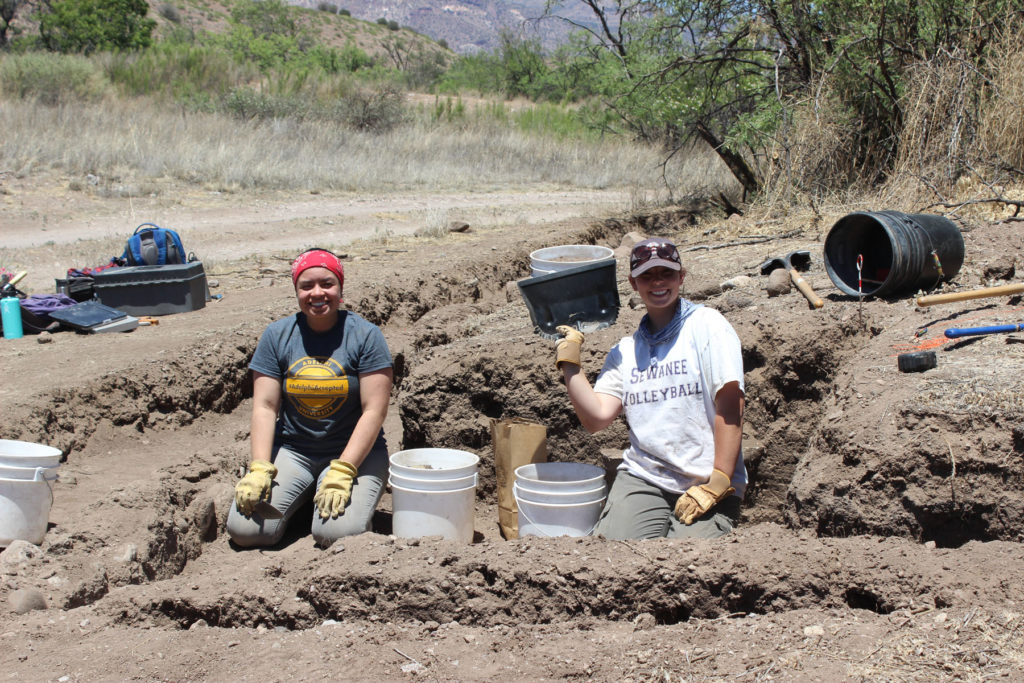
This brings me to another group of people who are missing something right now: the Class of 2020. A lot of our students from the past two field seasons have graduated in the last two weeks, and are missing the gatherings of family and friends we traditionally have to mark important occasions. A few others who were slated to finish this week graduated a semester or two early, ending 2019 with a more traditional graduation and exciting plans for work, and then finding themselves newly employed in an incredibly uncertain time.
When I reached out ask what they were doing, though, the replies they sent me were all positive. Confident. Happy, even. They were happy to tell me about their thesis topics, about the jobs and internships they plan to start as soon as it’s safe, and the things they’re doing with this “bonus time” while they wait.
They have done a lot of difficult things—some I got to watch them do, and many I didn’t. They know they can distinguish colors in brown dirt after a full day working in the heat. They know they can finish all the papers and exams standing between them and graduation, even when their classes are suddenly moved online mid-semester and their college campuses shut down. Many of them are also first-generation college students and members of other underrepresented groups in our field, and they know they can overcome all sorts of extra challenges our educational system isn’t set up to account for. And because they’ve done a lot of difficult things to accomplish their goals, they know they can weather the difficulties ahead, too.
Next year the ironwoods and saguaros will bloom again in late May. I hope many of the new students we looked forward to meeting this year will meet us in May 2021 instead. In the meantime, here’s a short tribute to the Class of 2020 (and our early graduates for that year, too). Hearing from them makes me feel better about the future.
Kristin Bridges graduated from the College of New Jersey in 2020. I think she’s smiling in every single photo I have from the 2019 field school—in fact, I seldom saw anyone who wasn’t smiling when she was around.
Alex Burden graduated from the University of Colorado, Boulder in 2019. When our 2019 students decided to exchange old-fashioned letters from one end of camp to the other, several had brought fountain pens—but Alex had also brought sealing wax!
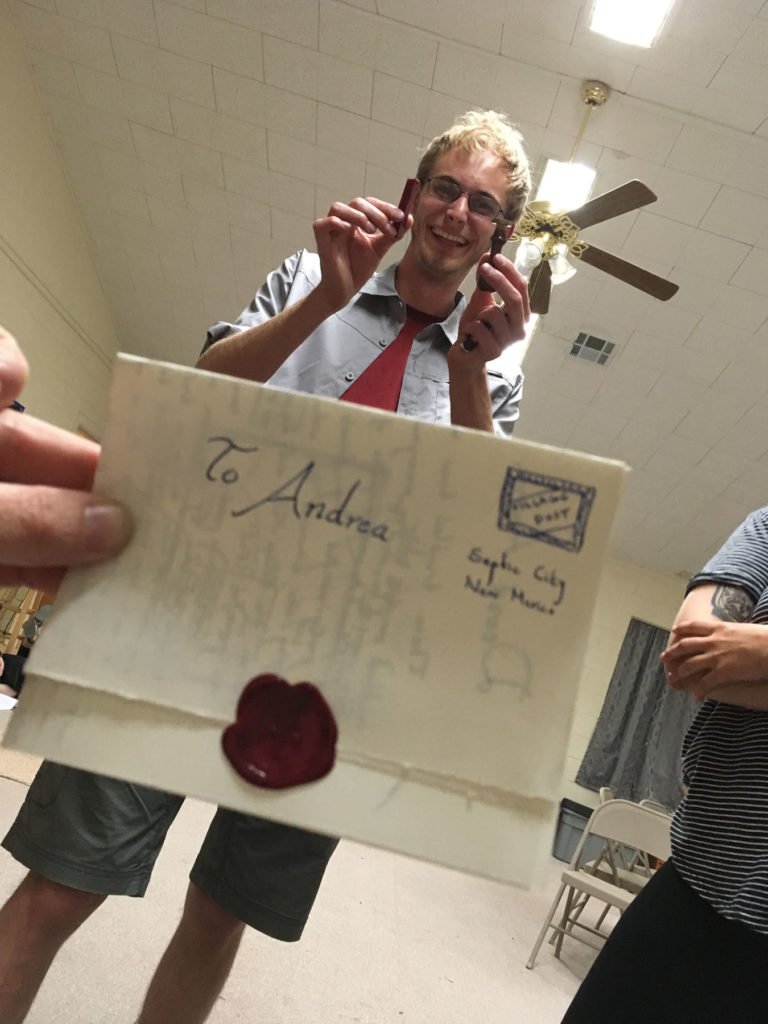
Zaynab Chamalian graduated from the University of South Florida in 2019. She wrote a senior thesis called “The Power of Plates: An Analysis of Ceramics from Gamble Plantation,” and decided to work for a while before starting grad school down the road. She has a beautiful singing voice and a dry sense of humor that plunges people into hysterical laughter with absolutely no warning.
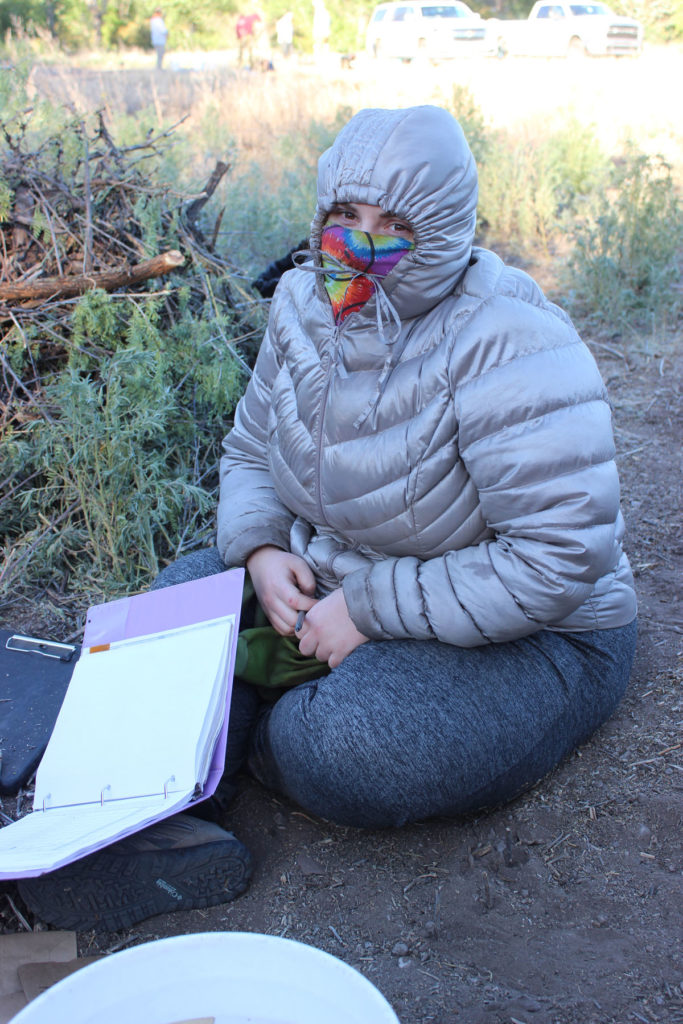
Constance Connolly graduated from the University of the South (Sewanee) in 2020. She never seemed to get tired or grouchy no matter what was going on around her. Maybe it was endorphins from a whole lot of volleyball!
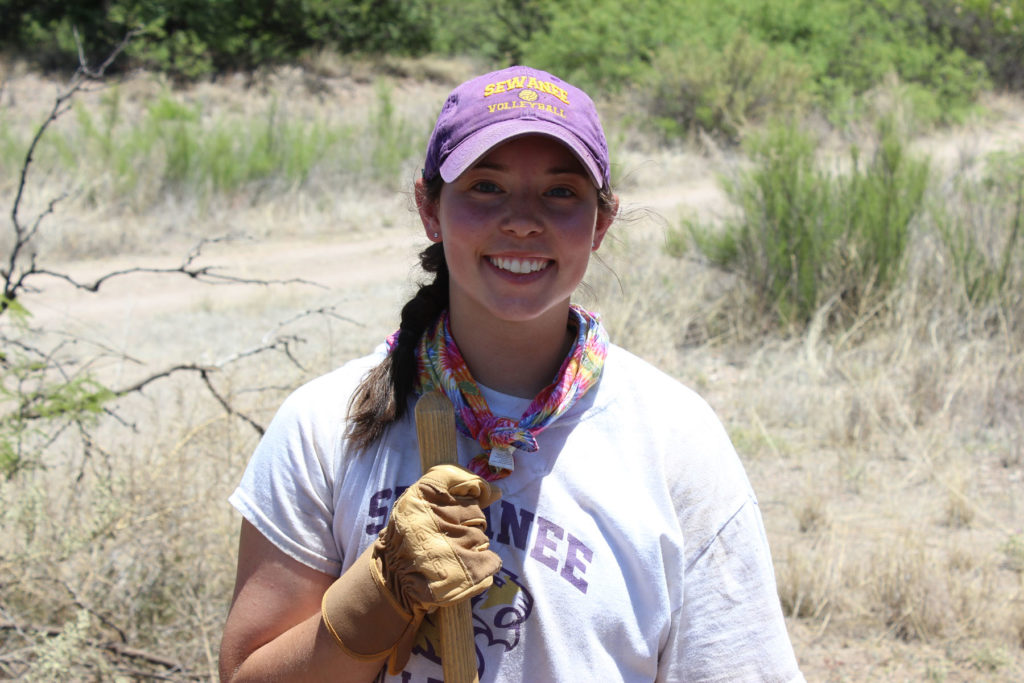
Alex Cullison graduated from Beloit College in 2020. His senior thesis is called “Speak American: White Ethnonationalism and Language Ideology.” He’s a great example of how linguistics is related to other parts of anthropology, always curious about human beings and all the ways we can study them and learn to understand them better. He wrote more letters than anyone I’ve ever met, fueled by a love of language and of those he wrote to.
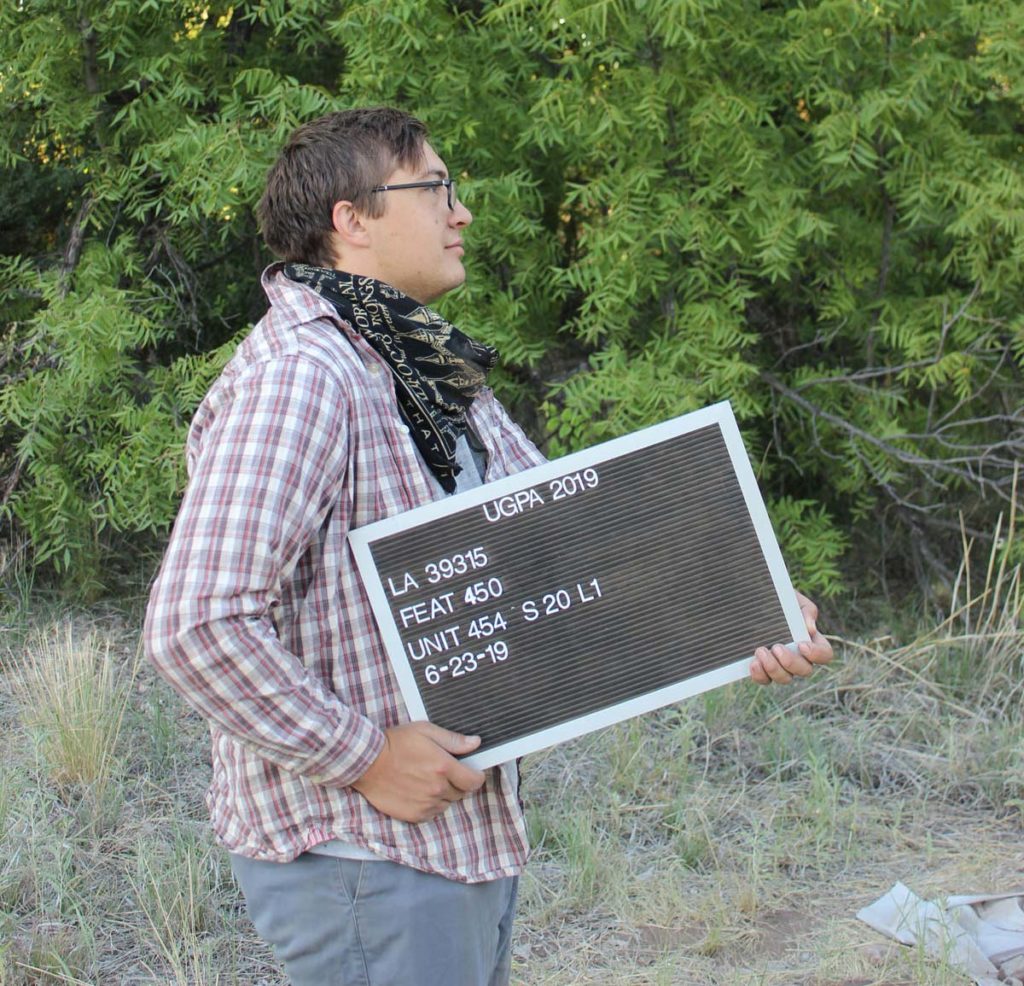
Chris Fuchs graduated with honors from Washington College in 2020. He double-majored in anthropology and philosophy, and wrote a senior thesis that combined both fields. He can also dig like crazy—I’ll never forget digging a never-ending trench through ever-harder wall melt with him until we finally, finally found the end of a wall that had been eluding us for three years.
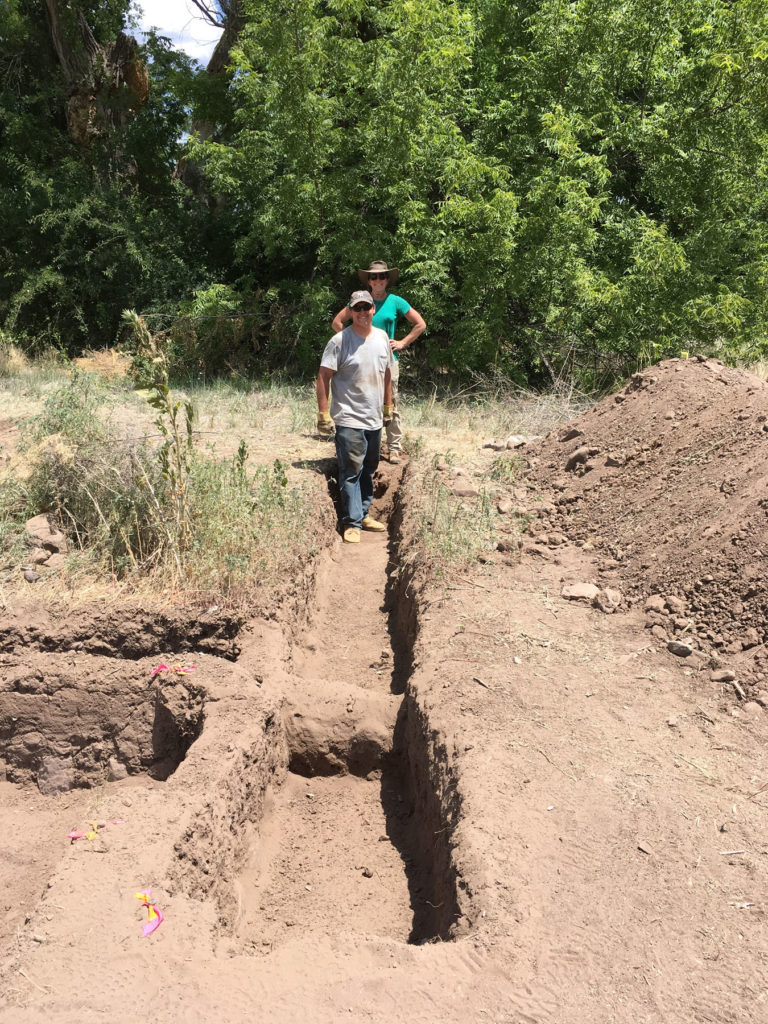
Esteban Jasso graduated with distinction from the honors program at Cochise College in 2020. Early this year, he presented his research on the historic component of the Gila River Farm site, “Historic Occupation Revealed: Understanding an Understudied Link in the Gila River Farm’s Archaeological Record,” at the Society for Historical Archaeology conference in Boston. Esteban was enthusiastic about absolutely every new topic we introduced during the field school, but we were especially excited to see him focus in on historic archaeology, something none of us had spent much time delving into at our field site before.
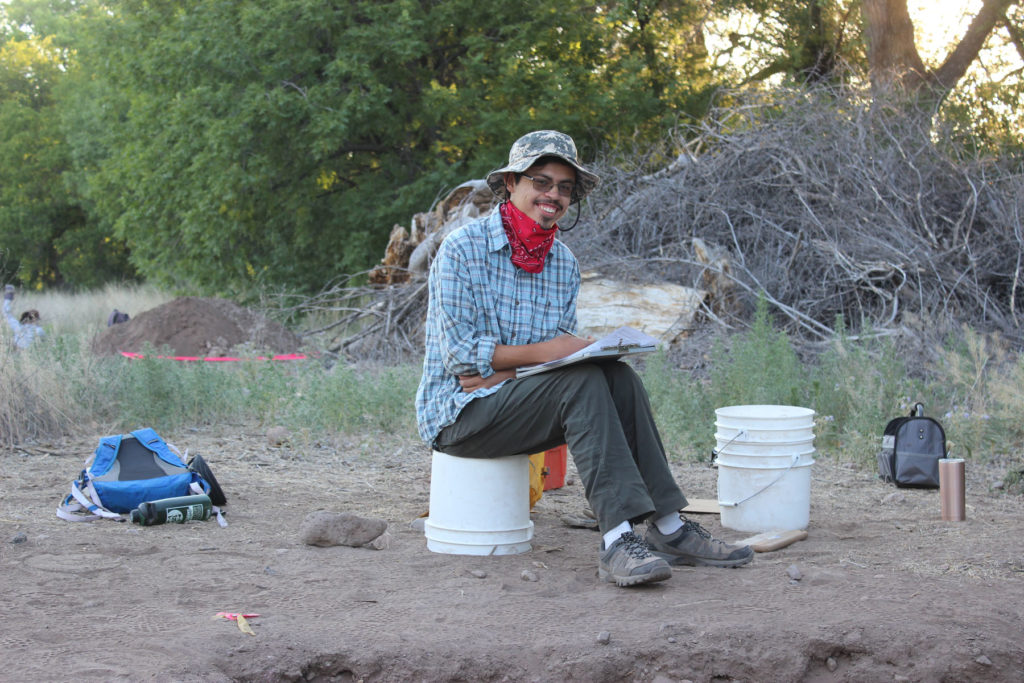
Chris La Roche graduated from the University of Arizona in 2020 (with a 4.0 GPA!). Since attending our field school back in 2017, he’s done a lot of the basic ground stone tool and ceramic analysis for the Gila River Farm site at Archaeology Southwest, and has worked on several excavation projects as a Field Technician for Desert Archaeology, Inc. He plans to continue working in cultural resource management as projects begin again this summer. Chris is legendary on our project for never, ever getting tired of hiking, no matter how long or steep a survey area might have been, and he hikes as much as he can in his spare time.
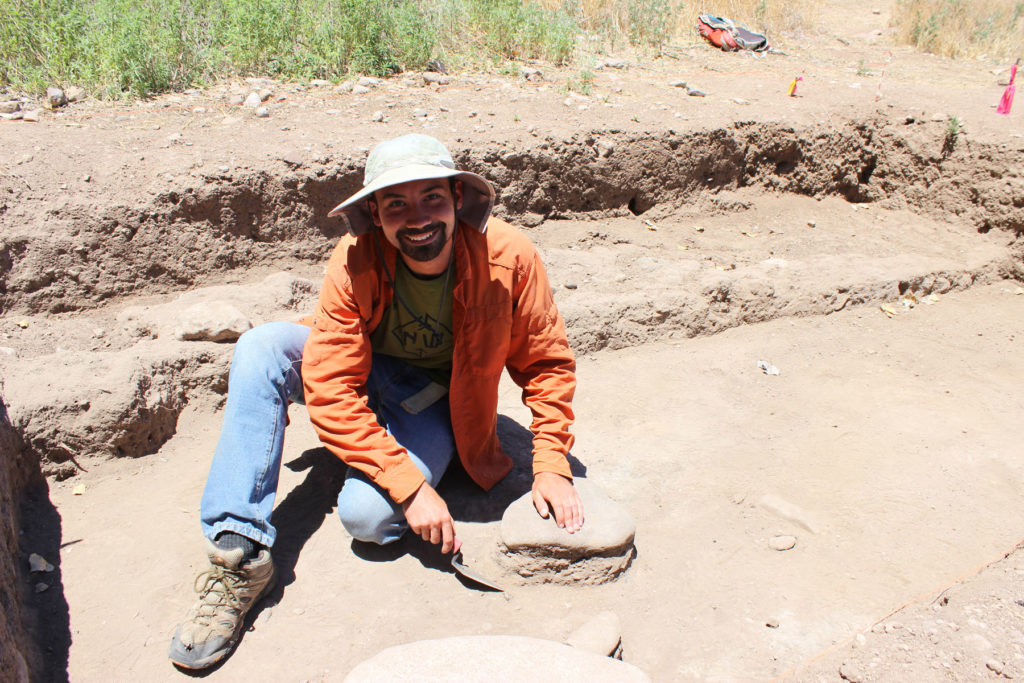
Kailey Loughran graduated from the University of Vermont in 2020. She completed her undergraduate thesis, “Getting Defensive in the Upper Salt River: A Spatial Reconstruction of Ancient Visibility,” using data from Dr. John Welch, whom she met at our field school. She has continued to pursue her interest in experimental archaeology, and her studies of basket making have led to a new hobby making baskets out of an unusual material—old newspapers. She’s looking forward to excavating socially-distanced test pits with an archaeology firm near her this summer.
Alexis Miller graduated from the University of Delaware in 2019. His career in the U.S. Air Force has kept him busy since then; most recently, he has been working in Germany. He plans to return to archaeology after he retires from the Air Force sometime down the road. Unlike most of us, the physical labor of fieldwork was never enough for Alexis to burn off energy—I have vivid memories of him doing kettlebell workouts and jumping on and off of things around camp in the evenings.
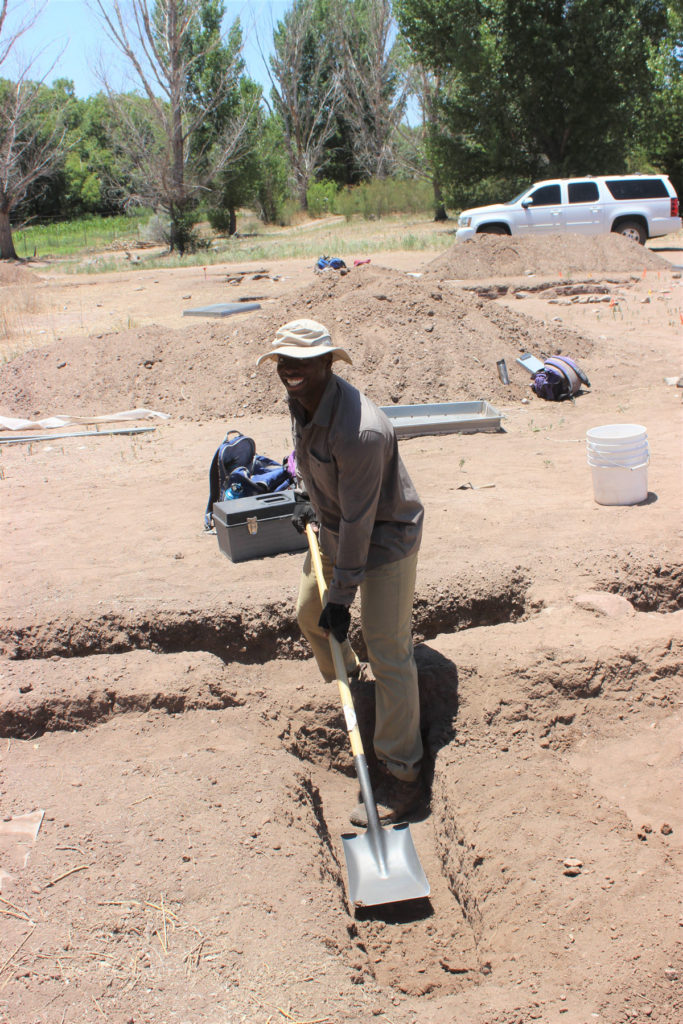
Laura Rojas graduated from Adelphi University in 2019. Her senior capstone paper was called “Stuck in Between: Understanding the Enculturation and Acculturation Experiences of 1.5 Generation Immigrants,” and she is now a project coordinator at Transperfect, a major translations firm. When Laura and her teammates found a pottery bowl embedded in a room floor as part of a mealing feature, we warned her not to be disappointed when it came out in pieces. They astonished us all by managing to get it out intact.
Kiley Stoj graduated from the State University of New York at Cortland in 2020. She arrived at our field school with a strong interest in plant biology, which blossomed when she met paleoethnobotanist Karen Adams during her annual visit and lecture. Kiley won a Fulbright scholarship to study Ayurvedic medicine in India and compare plant use in that tradition with plant remains in the archaeological record. Like so many other things lately, her project has been delayed, but while she waits for it to be safe to begin she’s been doing a lot of—you guessed it—gardening.
Stephen Uzzle graduated with honors from the University of Arizona in 2019. His undergraduate thesis, “Reevaluating Mobility and Sedentism in Classic Mimbres and Salado Villages in Southwest New Mexico,” used data from our field school and the surrounding region. After graduating, he began doing archaeological survey as a Field Technician for Statistical Research Inc., where he is now an Assistant Project Director. I remember putting Steve in a test trench between two room blocks the first week of field school and telling him we wanted it a meter deep. I expected it to take a couple of days. It took him a few hours.
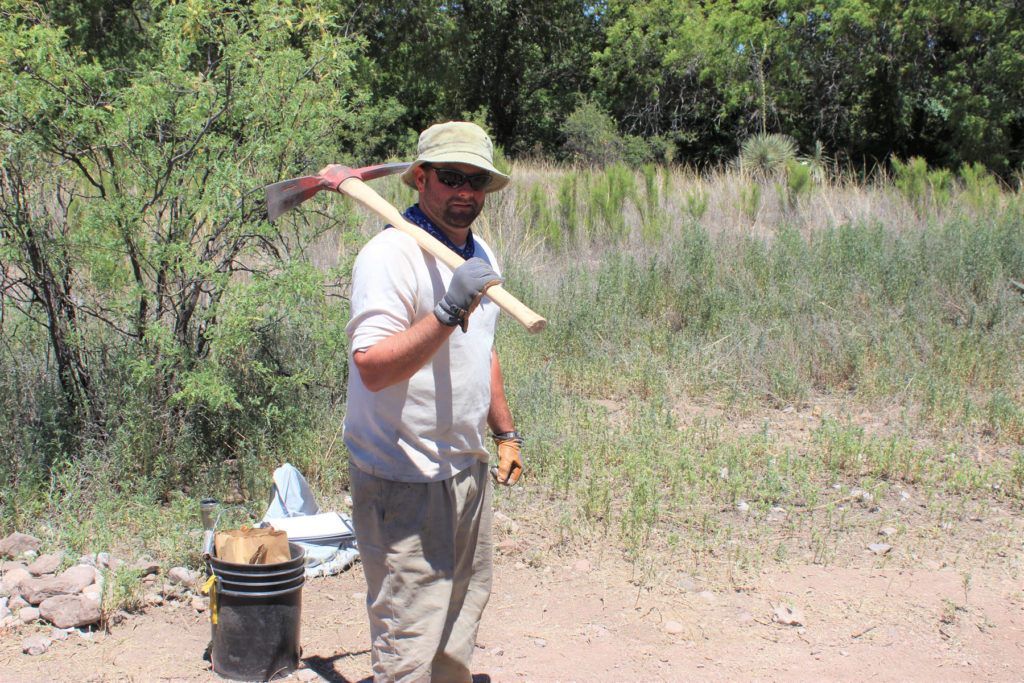
There’s one more graduate to celebrate this year, this time from graduate school! Johnny Shaefer, who finished his undergraduate degree in 2018, received his Master’s degree from the University of Missouri this month. He wrote his thesis, “Obsidian Procurement in the Gallinas Mountains of West Central New Mexico,” with guidance from advisor Dr. Jeffery Ferguson, whom he met during our field school back in 2017. We still tell students stories about the detailed notes and drawings Johnny made in his field journal in the evenings, and his tireless work digging an enormously long test trench full of looters’ deposits, adobe melt, and mosquitoes.
